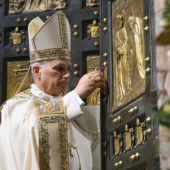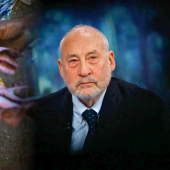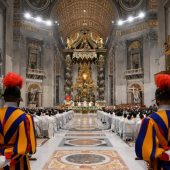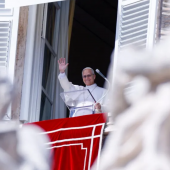Humanity must not return to ‘ailing normality,’ says Pope Francis
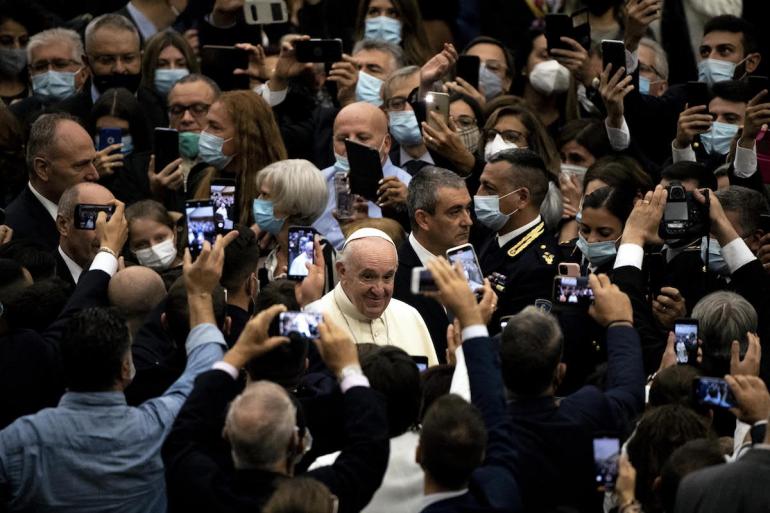
Pope Francis called on people not to return to so-called “normality” before the coronavirus pandemic, describing it as “ailing.”
In his weekly general audience on Sept. 30, the pontiff said humanity cannot go back to the “normality” that was “sick with injustice, inequality, and environmental degradation.”
He said the world was already “suffering from a malaise” and that the pandemic has only “highlighted” and “accentuated.”
The Catholic Church leader said everyone is instead called to the “normality of the Kingdom of God” that is “based on contributing, sharing and distributing, not on possessing, excluding and accumulating.”
Pope Francis said the human family should be “guided by faith, hope, and charity” in transforming the world into “a new and better” one.
He reminded the faithful that “the paths of dignity, solidarity, and subsidiarity” are “essential to promote human dignity and the common good.”
“And as disciples of Jesus, we have proposed to follow in His steps, opting for the poor, rethinking the use of material goods and taking care of our common home,” he said.
The pontiff expressed hopes that the world’s journey to healing “will not come to an end … but rather that we may be able to continue to walk together, to ‘keep our eyes fixed on Jesus.’”
He said people should recognize the presence of Christ “in our poor and suffering brothers and sisters, to encounter them, and to listen to their cry and the cry of the earth that echoes it.”
He stressed the need for “tenderness,” which he said “enables progress in a society, a family, a neighborhood.”
He said tenderness “is to give oneself, to give, which is not giving alms, but to give from the heart.” It is a gesture that “distances us from selfishness and the eagerness to possess,” he added.
Pope Francis said humanity will never be able to emerge from the crisis that has been highlighted by the pandemic “mechanically,” adding that getting out of the crisis must be done “with tenderness.”
“Tenderness is the very sign of Jesus’ presence. Approaching others in order to walk together, to heal, to help, to sacrifice oneself for others,” he said.
The pontiff noted that the pandemic has caused “deep wounds” and exposed “physical, social, and spiritual vulnerabilities.”
“Inequality of opportunity, inequality of goods, inequality of access to health care, inequality of technology, education: millions of children cannot go to school, and so the list goes on,” he said.
“These injustices are neither natural nor inevitable,” said the pontiff. “They are the work of man, they come from a model of growth detached from the deepest values,” he said.
The pope said the human family “must find the cure not only for the coronavirus” but also “for the great human and socio-economic viruses.”
“They must not be concealed or whitewashed so they cannot be seen,” he said.
“And certainly, we cannot expect the economic model that underlies unfair and unsustainable development to solve our problems,” Pope Francis said.
The pontiff urged everyone “to work urgently to generate good policies, to design systems of social organization that reward participation, care and generosity, rather than indifference, exploitation, and particular interests.”
“We must go ahead with tenderness,” he said.
“A fair and equitable society is a healthier society. A participatory society – where the ‘last’ are taken into account just like the ‘first’ — strengthens communion,” said the pope.
“A society where diversity is respected is much more resistant to any kind of virus,” he added. - LiCAS.news
Radio Veritas Asia (RVA), a media platform of the Catholic Church, aims to share Christ. RVA started in 1969 as a continental Catholic radio station to serve Asian countries in their respective local language, thus earning the tag “the Voice of Asian Christianity.” Responding to the emerging context, RVA embraced media platforms to connect with the global Asian audience via its 21 language websites and various social media platforms.










